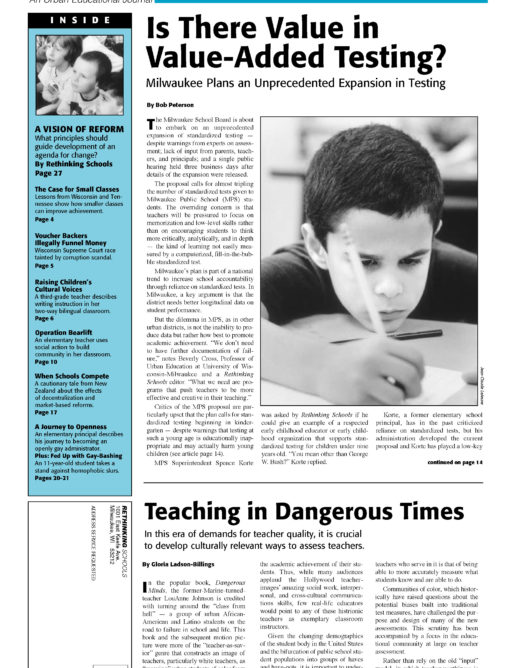Preview of Article:
Dangers of Early Childhood Testing
As early as 1976 the Association for Childhood Education International (ACEI) called for a moratorium on standardized testing in the early schools years. A decade later, it strengthened its positions, saying: "We now believe firmly that no standardized testing should occur in preschool and K-2 years. Further we question the need to test every child in the remaining elementary years."
By Bob Peterson
In 1987 the National Association for the Education of Young Children (NAEYC) adopted a policy opposing testing of kindergarten through second-grade children ages three through eight. The NAEYC’s position lists multiple cautions and points out, “Young children are not good test takers. The younger the child, the more inappropriate paper-and-pencil, large-group test administrations become.”
According to Kathy Lake, Dean of Education at Milwaukee’s Alverno College, some of the other professional organizations opposed to standardized testing for young children include: the National Council of Teachers of English, the National Council of Teachers of Mathematics, and the National Association of Elementary School Principals.
Mary Diez, Graduate Dean at Alverno College and a national expert on student assessment, told Rethinking Schools that she strongly opposes the MPS plan of testing first-and second-graders. “Everything we know about testing says that such testing is neither valid nor reliable on kids younger than third grade. Besides, it causes trauma and it’s just unnecessary.”
Vito Peronne, Director of Programs in Teacher Education at Harvard Graduate School of Education, has argued that continuing testing in the early grades “in the face of so much evidence of its deleterious effects, in opposition to most of what we know about the developmental needs of young children, is the height of irresponsibility.”</p

